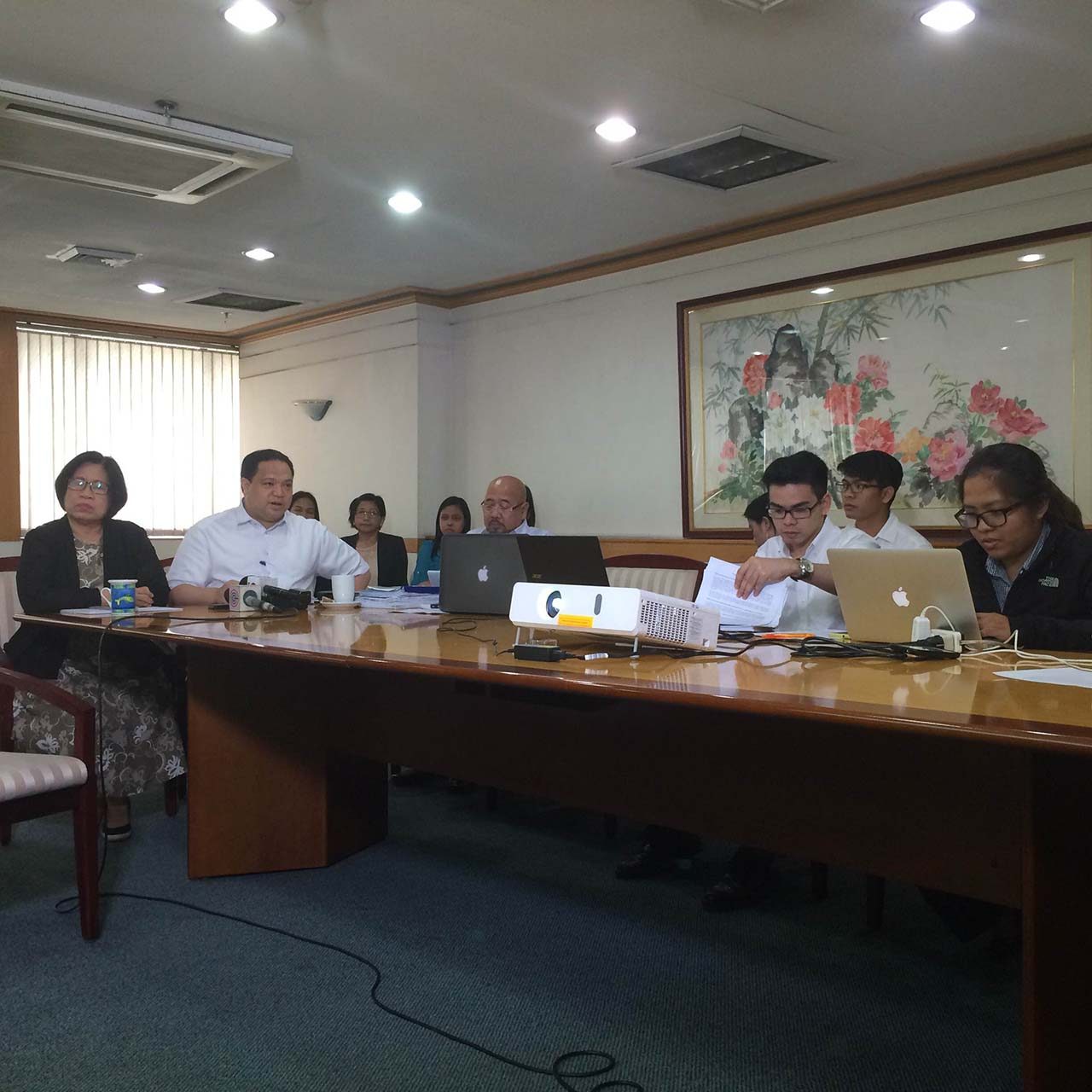SUMMARY
This is AI generated summarization, which may have errors. For context, always refer to the full article.

MANILA, Philippines – The Securities and Exchange Commission (SEC) announced on Tuesday, March 29, that it has rejected the request of the Philippine Stock Exchange (PSE) for an exemption over its planned merger with the Philippine Dealing Systems Holdings Corporation (PDS).
The decision leaves the planned merger between the country’s local equities market and fixed-income or bond market in limbo.
“The SEC did not find sufficient reason to grant their request,” said SEC Commissioner Ephyro Luis Amatong following a special en banc session to discuss the planned merger held on Monday.
Not justifiably in the public’s interest
The PSE sought the exemption to acquire 100% of the outstanding shares of PDS since its planned merger would violate the 20% ownership limit to an industry group as written under section 33.2(c) of the Securities Regulation Code.
The reason for the limit is to ensure that no single stakeholder in the exchanges becomes dominant.
PDS is the parent company of the Philippine Dealing & Exchange Corporation (PDEX) and the Philippine Depository & Trust Corporation (PDTC). It controls the country’s only fixed income or bond market.
“In studying the request for exemption we need to make sure that giving [it] would not negatively impact on the exchanges’ ability to effectively operate in public interest and its operations,” said SEC Chairperson Teresita Herbosa.
The SEC pointed out that the PSE had said its main rationale behind the merger would be to realize positive synergies and aid capital market development, but this was not reflected in its application.
“Based on what they put in the written application [submitted on January 26], we couldn’t find a specific set of synergies. They didn’t define what the cost savings would be,” Amatong said.
He added that the PSE didn’t provide a clear connection between the consolidation and the offering of new products and services as well as timelines and commitments, even the specific products and services intended, for its capital market development initiatives.
“The only thing they were willing to provide us is that there would be a decrease of 0.001% on depository fees,” Amatong said.
“It doesn’t make sense to allow the acquisition with all the concerns we have if the only thing that is sure to go to the investing public would be such a small increase.”
Monopoly fears
Amatong added that another factor taken into consideration was that a favorable recommendation by a government agency of a merger or acquisition would be taken as a sign that the merger does not violate the recently enacted Philippine Competition Act.
The PSE also applied for other reliefs necessary to complete the acquisition, such as the approval of the sale by existing shareholders of PDS and the transfer of shares in PDS to PSE.
Under the proposal, the stock exchange would buy out PDS and make it a subsidiary. It already owns a 21% stake in PDS.
It has also agreed to share purchase deals with 4 other PDS shareholders that own a cumulative 40% stake in PDS. These are the Bankers Association of the Philippines (BAP), Finex Research and Development Foundation, Incorporated, Whistler Technology Services, Incorporated, and Insular Investment Corporation.
Allowing the exemption would make the PSE the de facto monopoly owner of all the exchanges in the country, the SEC said.
Still open to the possibility
Amatong, however, said that the SEC would consider the merger if a better plan is proposed.
“We don’t necessarily reject the combination of the two exchanges. We just could not justify the current submission,” he explained.
In summarizing the commission’s findings, Herbosa noted that the goals that the PSE wanted to achieve could already be achieved without an exemption.
She did, however, agree with the PSE’s assertion that the general trend globally is moving towards integrating both equities and bond markets.
“We have to credit the PSE with very good performance for the past 6 years… The global trend, as they said, is that fixed income and equities in the rest of the world is being integrated. But we still cannot sacrifice our unique present two-system market if there are no assurances that the goals are towards the public’s benefit,” she said. – Rappler.com
Add a comment
How does this make you feel?
There are no comments yet. Add your comment to start the conversation.